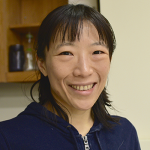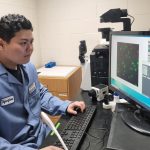Johns Hopkins Translational Immunoengineering Seminar: Stephen Miller, PhD
From Bench to Bedside: Translation of a Novel PLGA Nanoparticle Delivery System for Tolerogenic Therapy of Immune-Medicated Diseases
Seminar Take-Home Points
- Tolerance induction using antigenencapsulating PLG nanoparticles (Ag-PLG) recapitulates how self-tolerance is induced and maintained in the hematopoietic system.
- Ag-PLG uptake by splenic marginal zone and liver APCs via the MARCO scavenger receptor confers a tolerogenic phenotype and induces activation of CD4+Foxp3+, CD4+ Tr1, andCD8+CD122+ regulatory T cells which regulate effector T cell responses in a IL-10-dependentmanner.
- Gliadin-encapsulating PLG nanoparticles have proven efficacious in a phase 2 double-blind, placebo-controlled trial in celiac disease patients significantly reducing the gliadin-specific T cell response and preventing intestinal damage upon gluten challenge.
- Future disease indications under clinical development include multiple sclerosis (MS),neuromyelitis optica (NMO), and peanut allergy.
About the speaker
Dr. Stephen Miller is the Judy E. Gugenheim Research Professor Emeritus of MicrobiologyImmunology at Northwestern University Feinberg School of Medicine in Chicago. He received his Ph.D. in 1975 from the Pennsylvania State University and did postdoctoral training at the University of Colorado Health Sciences Center before joining the faculty at Northwestern in 1981 where he founded and served as Director of the Northwestern University Interdepartmental Immunobiology Center from 1992-2021. Dr. Miller is internationally recognized for his research on pathogenesis and regulation of autoimmune diseases. His current work is geared towards understanding the cellular and molecular mechanisms of T cell tolerance and translating the use of antigen-encapsulating biodegradable PLG nanoparticles for the treatment of other human immunemediated diseases including autoimmunity, allergy, protein and gene replacement therapy, and tissue/organ transplantation.





